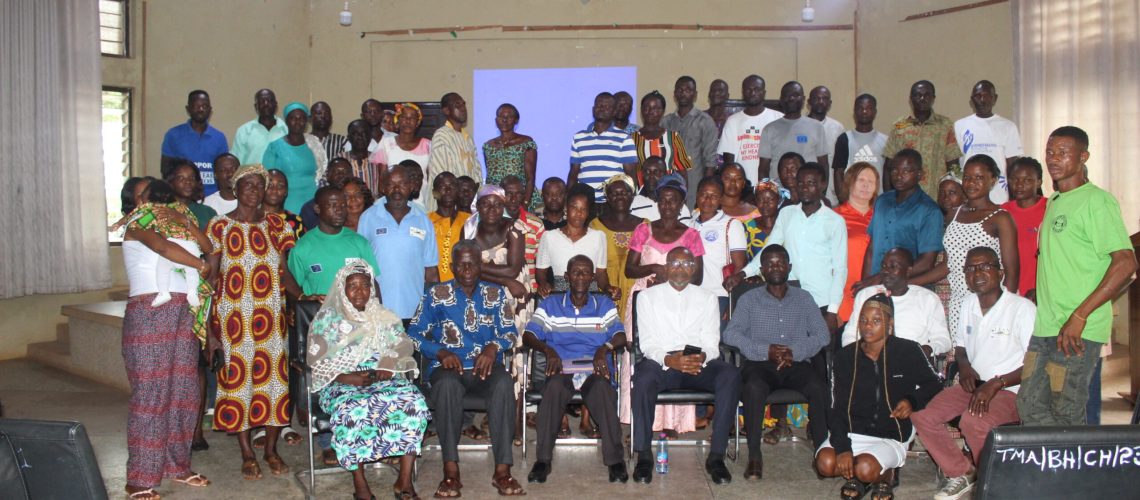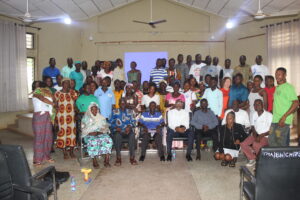In the face of escalating climate change and environmental degradation, local governance has emerged as a critical frontier for change. Recognizing this urgency, EcoCare Ghana, in partnership with the European Union-funded Landscapes and Environmental Agility across the Nation (LEAN) Project, has embarked on an innovative mission to support the Techiman Municipal Assembly in enacting and promoting awareness of its bye-laws.
Ms. Vassileva Alorvor, the Campaigner for EcoCare Ghana, emphasizes the pivotal role of such initiatives in fostering sustainable livelihoods and empowering communities. “Our aim is not just to enforce regulations but to educate and engage,” she asserts. “By enhancing the understanding of local farmers and community members, we pave the way for adherence to the law and proactive environmental stewardship.”
Through the LEAN Project, EcoCare Ghana has focused on key areas directly impacting farmers’ lives and biodiversity conservation. From kraaling and animal rearing to the regulation of economic trees and crop growth and sales, these bye-laws aim to strike a balance between livelihoods and environmental preservation.

participants at the workshop on Bye lawsAt a recent workshop held at Techiman to interprete the bye-laws to community members, facilitated by legal expert Mr. Mohamadu Bermah Sulemana, he shed light on the legal intricacies governing agricultural practices. “Farmers play a crucial role in our ecosystem, but they must also operate within regulatory frameworks,” he explains. “Understanding these laws not only safeguards their rights but also ensures sustainable practices for future generations.” He stated that, aside the constitution, assemblies are given the rights to enact bye- laws to govern themselves under Local Government Act 2016.
He gave some examples in the bye -law, you need a license from the assembly to rear more than 20 fowls domestically’’. This is to control the possibility of the birds becoming a nuisance to the community as well as preventing them from contributing to environmental degradation.

He also noted that, farmers who produce vegetables such as tomatoes need special license from the assembly, since people with certain skin diseases are not allowed to grow or sell some vegetable to prevent the spread of diseases. On economic trees, he explained that, naturally occurring trees belongs to the State and therefore farmers who nurture such trees need licenses from the Forestry Commission to log them.
He emphasized that the bye-laws have punitive measures put in place to deter law breakers ” a minimum fine of 100 penalty units which is 120 Cedis and a maximum fine of penalty unit of 250 (3500) or with recalcitrant law breakers, a prison sentence can be giving at the discretion of the judge.

Participants, drawn from the LEAN project communities, embraced their newfound roles as ambassadors of change. Madam Grace Yaa Anaa from Nkwaeso reflects on the insights gained “I now realize the importance of responsible farming practices. It’s not just about our individual plots but the collective well-being of our community.”
Nana Kyeremeh from Sreso echoes this sentiment, envisioning a future where bye-laws serve as bulwarks against environmental exploitation. “These laws are not just words on paper; they are shields protecting our land and livelihoods,” he remarks. “We must all champion their cause and uphold our responsibilities as stewards of the earth.”
As Techiman paves the way for grassroots environmental governance, EcoCare Ghana remains steadfast in its commitment to nurturing a culture of sustainability in the transition landscape of Ghana.






